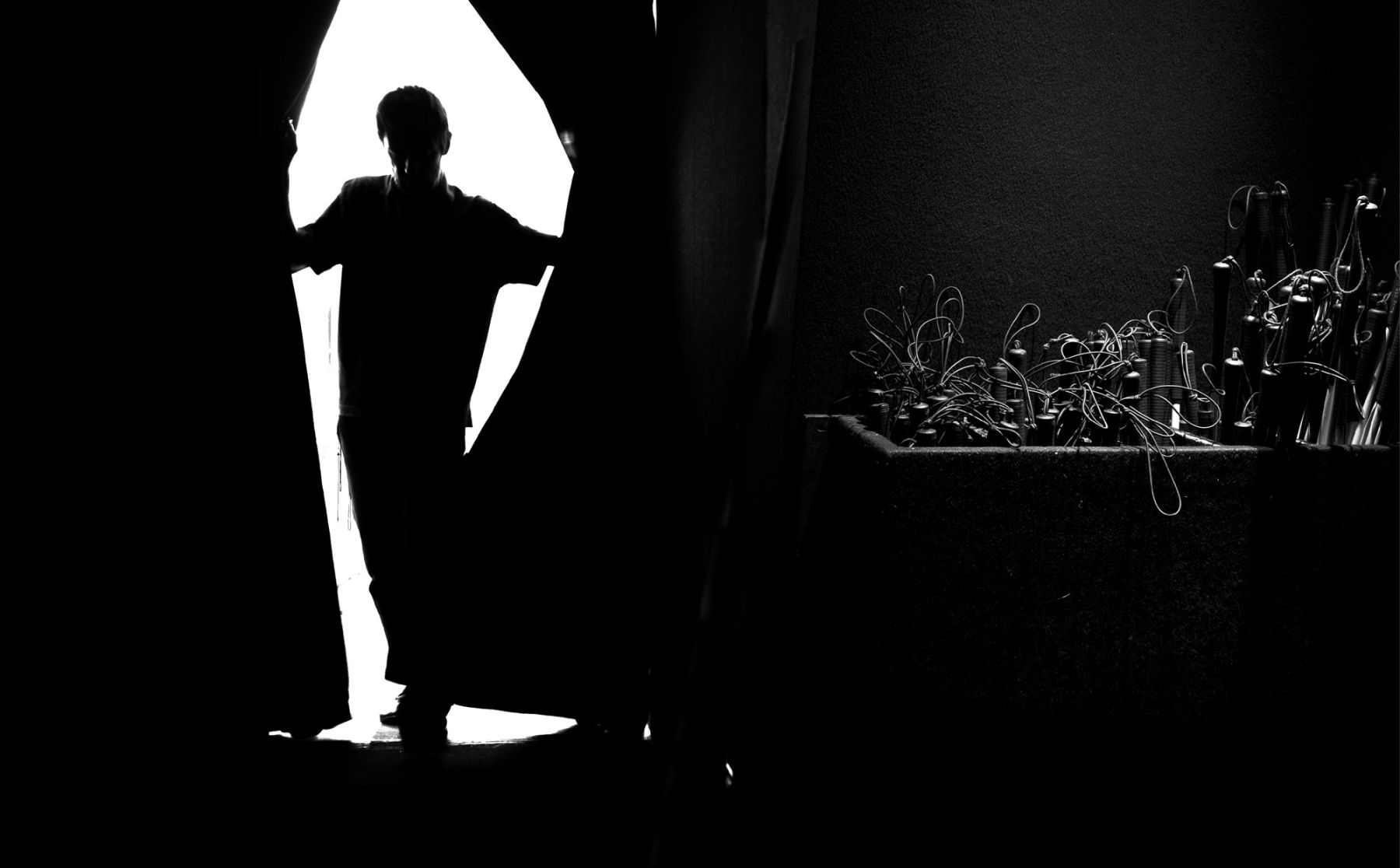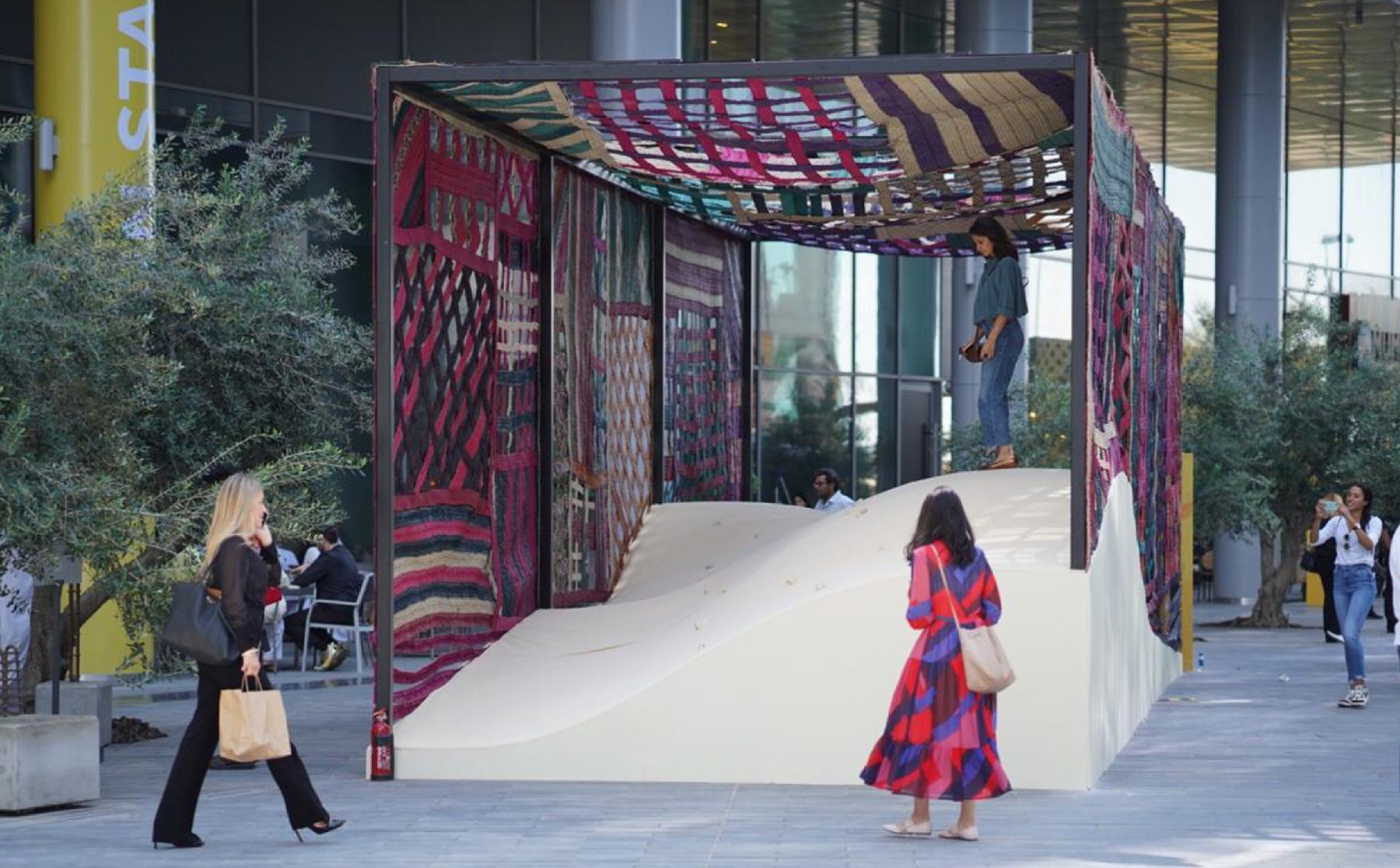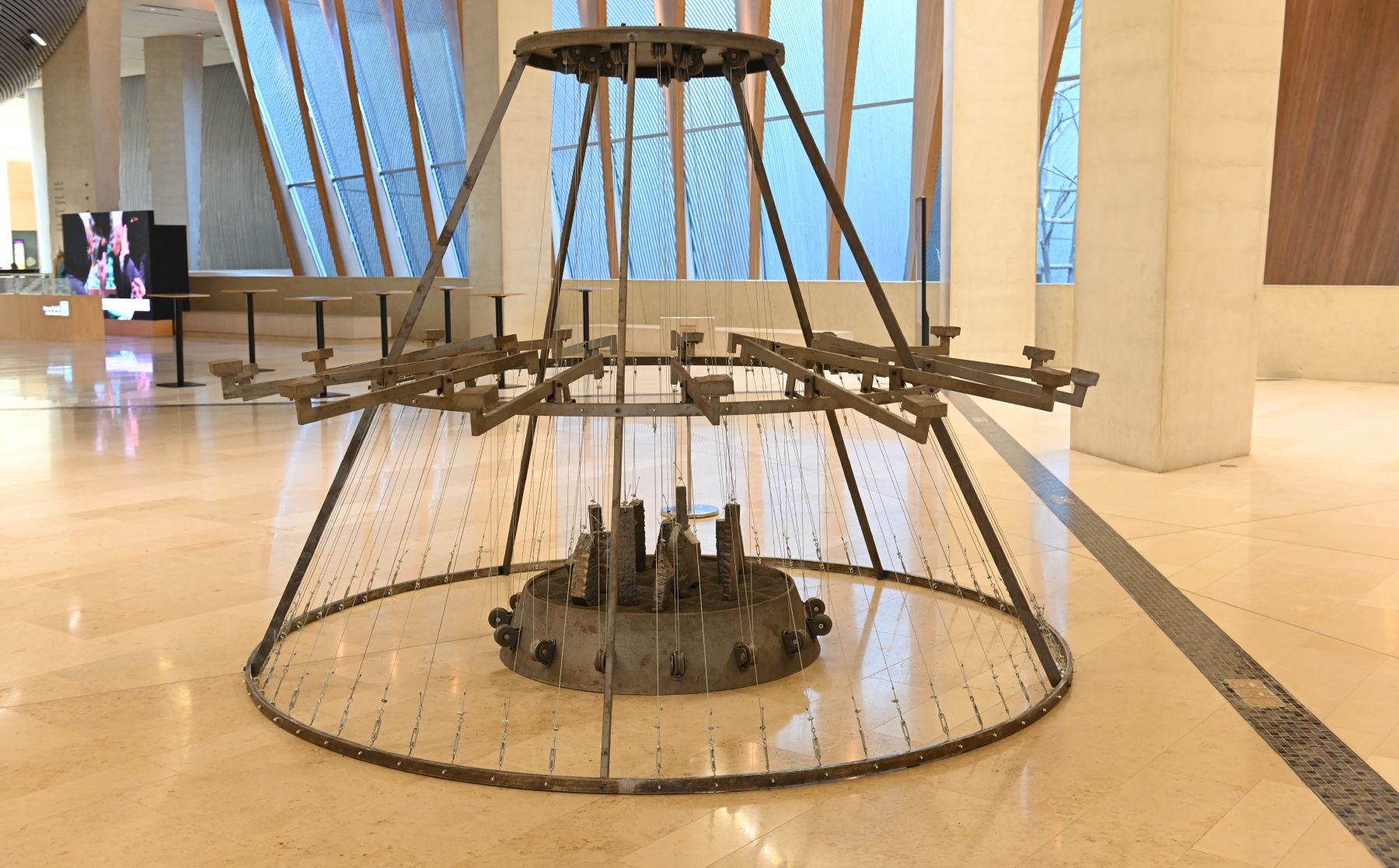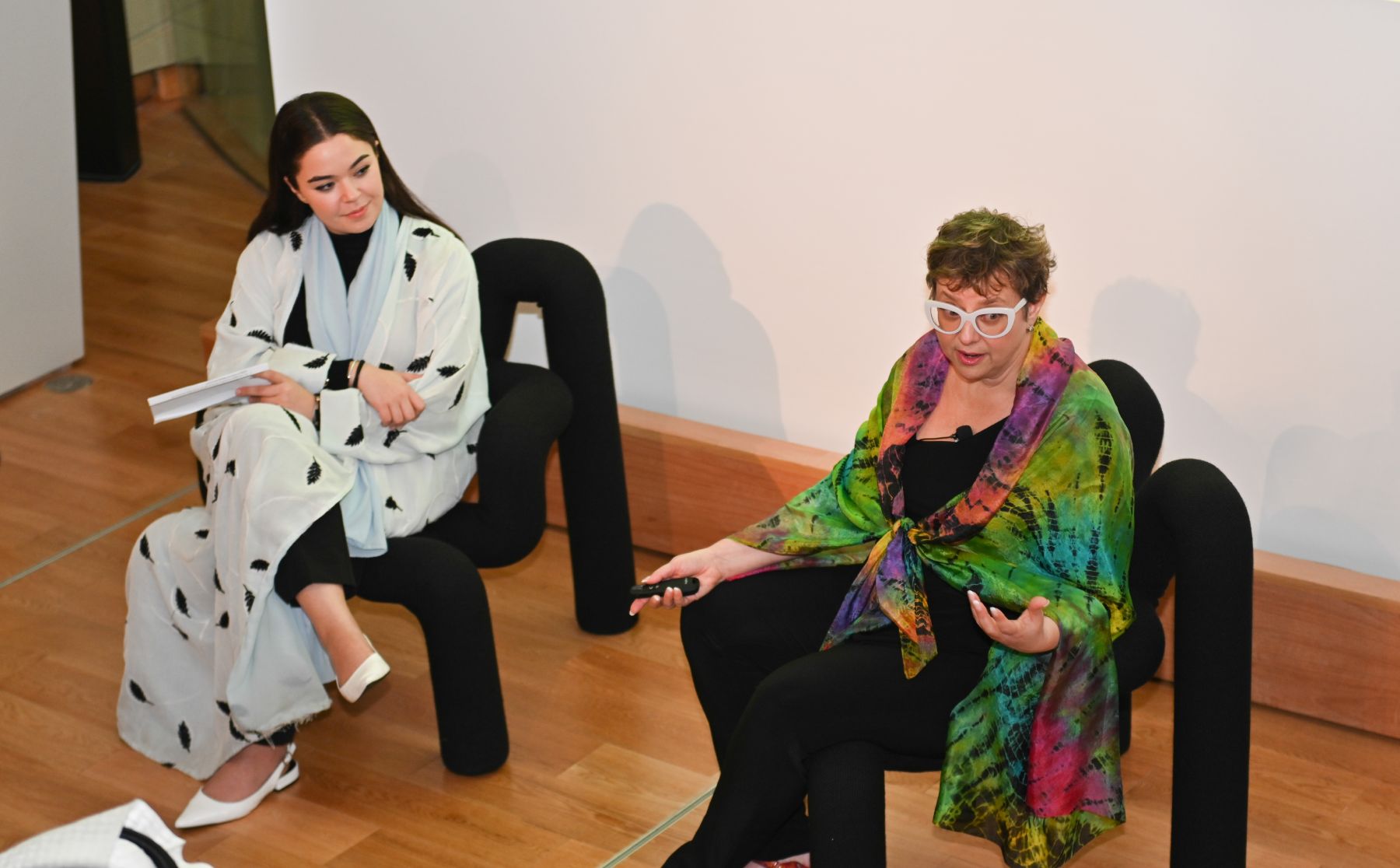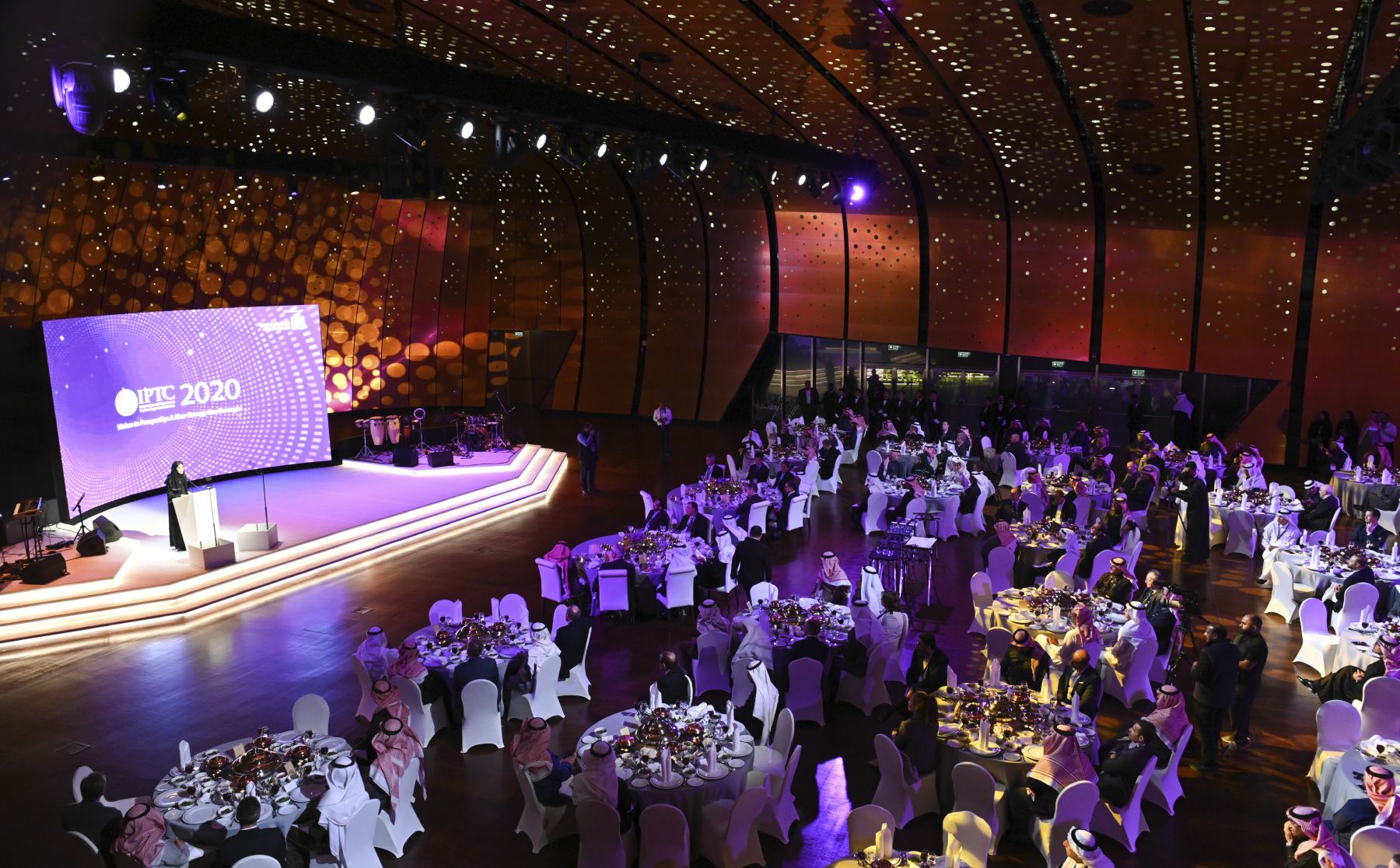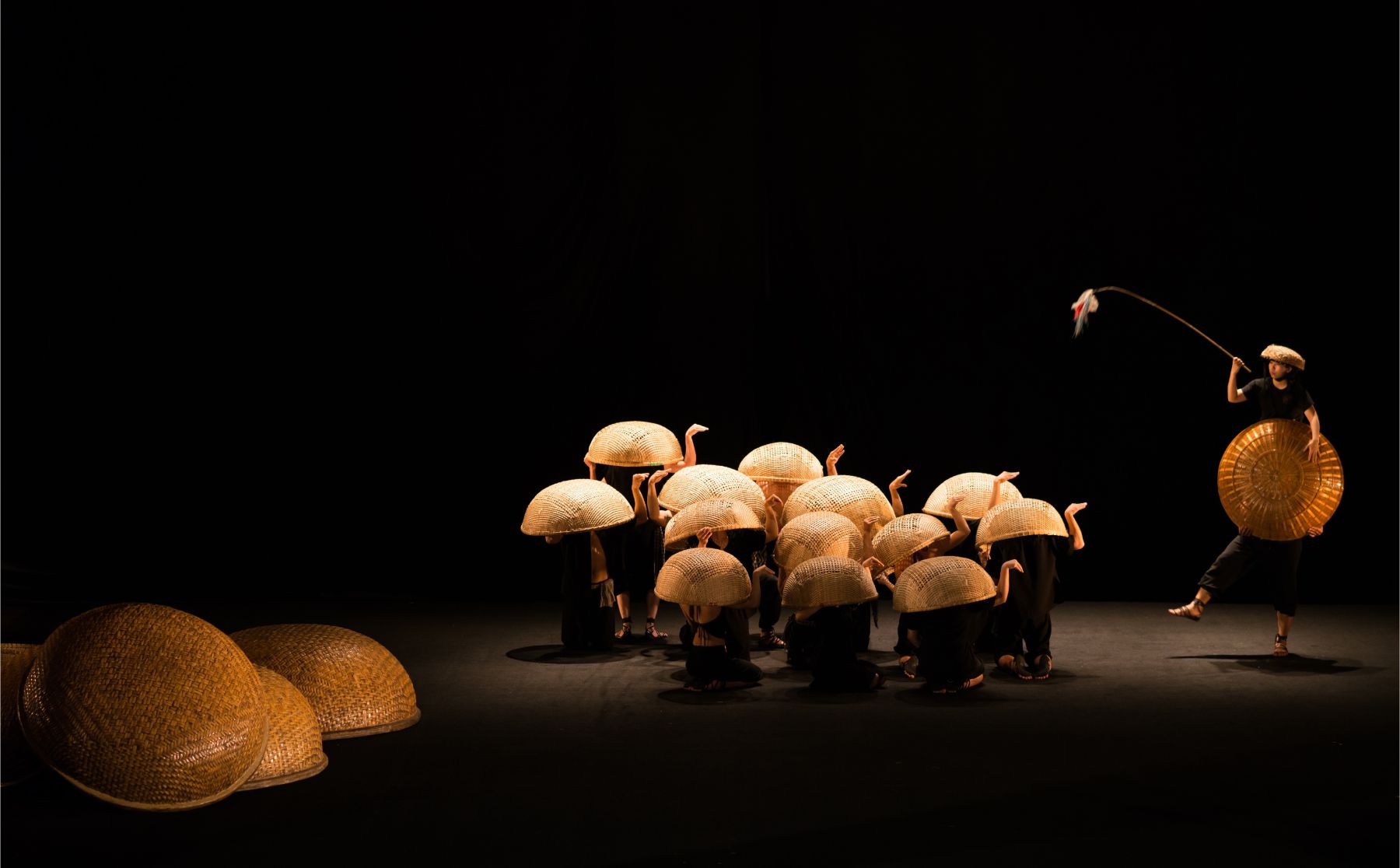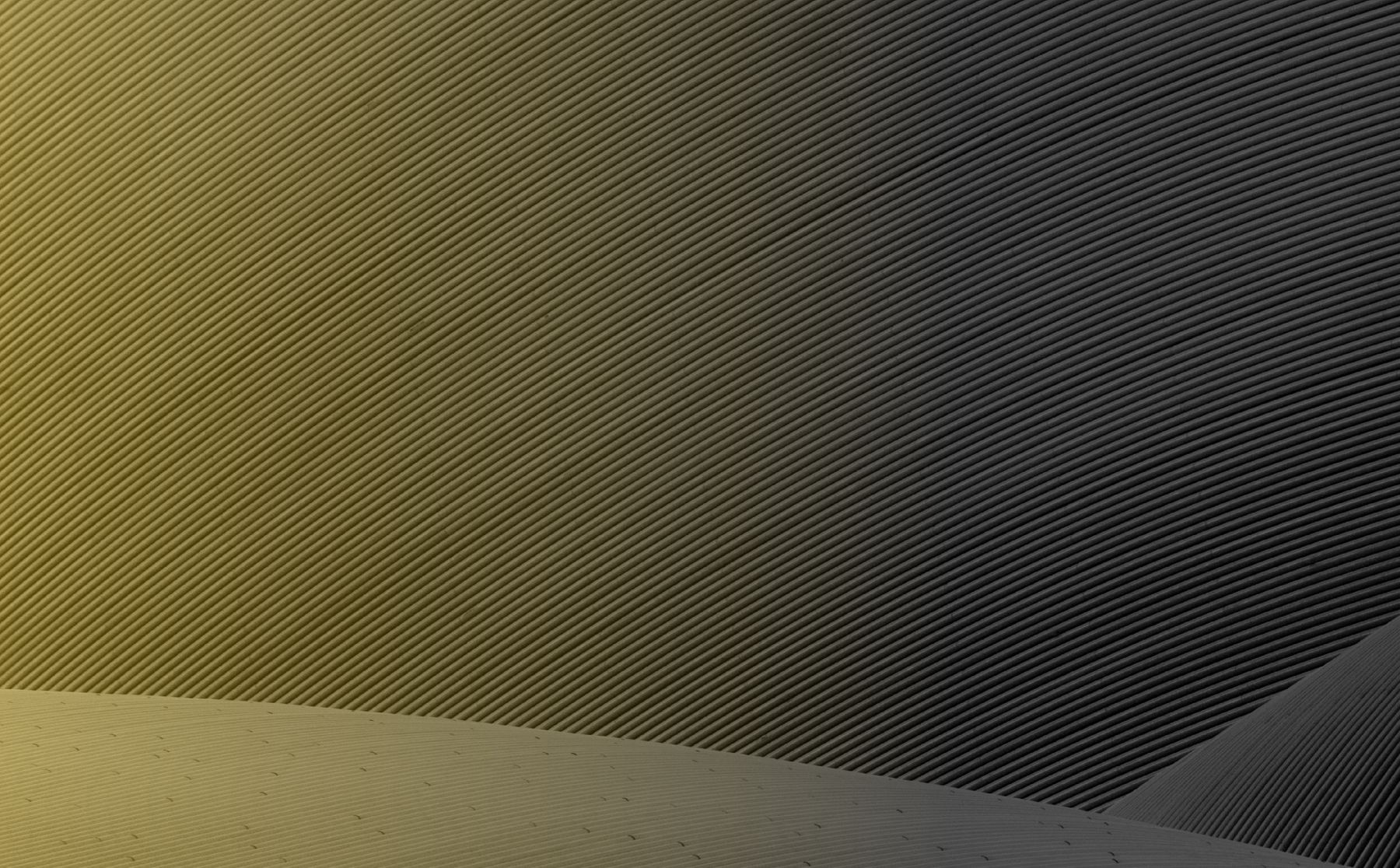“As an artist, you have to create your own path. You have to create your own opportunities.” - Aziz Jamal
Written by Nora Al-Taha
Aziz Jamal is a 28-year-old Saudi multidisciplinary artist. His talent and drive led him to apply to the King Abdulaziz Center for World Culture’s (Ithra) first Artist Open Call program – which he won. His work Play Playground was showcased at Ithra’s Zamakan contemporary art exhibit in 2019.
For our virtual interview, Jamal popped on-screen, dressed in his off-duty artist attire—a casual cap and sweatshirt. After checking on Internet connections and exchanging “ Can-you-hear-me’s?” he effortlessly presented himself, offering his best talk show performance: calm, confident and articulate.
Jamal shares his quarantine experience and feelings on the uncertain pandemic. “With COVID, I feel there’s so much pressure to produce because of the time we have at home. Just having free time isn’t very inspiring.” With a smile, he continues, “I have been spending more time at the studio—just toying around and keeping busy, but not necessarily with any official work-in-progress.”
While the world seems to scramble for lost time and chase after dreams during quarantine, Aziz nonchalantly exclaims how most of us are feeling. With no guilt about the pressure to create, create, create, this young artist knows when to pursue inspiration and when to settle into downtime. He remains authentically himself and allows his work to speak for him, rather than for the situation he is placed in. “I feel not enough time has passed during this pandemic to see how it is affecting me and my work. Any kind of artwork I might create now would be more reactive than reflective. I prefer being more reflective in my work.”
As the Kingdom’s cultural vibrancy was blossoming, Jamal exhibited in several galleries across Saudi Arabia as well as the 21,39 art fair in Jeddah in June of 2019. With his eccentric eye and inspiring sensibilities , Jamal’s work evokes contemplation for his audience. The Ithra exhibit, Zamakan, featured original artwork reflecting the theme of “Notions of Time and Space Complexity.” Jamal’s Play Playground showcased seven jelly-formed bars of soap. The artist washed his hands continuously during an 18-minute video, ultimately, according to him, “stripping his hands raw. ”
The handwashing performance highlighted the process behind the product display. “For me, the insistent and constant handwashing for 18 minutes symbolized how time does not stop for anyone. The continuous dissolving (of the soap) is something you can’t control.” What seemed to be a very mundane act—handwashing—evolved into a c ontemplative evocation of change or even well-intentioned but misguided destruction .
Unknowingly, this piece foreshadowed one of our fundamental present-day COVID-19-inspired rituals.
Jamal reflects on his prescient piece : “Seeing the performance now, in hindsight, feels very ominous. It’s interesting seeing something that I made in the past reflect what would happen in the future. I think that is what art does sometimes – it somehow predicts future events.” As the saying goes: “ L ife imitates art.”
With the pandemic’s eerie events hanging over us, the crisis implores artistic expression. This is a core aspect of Ithra’s mission: encouraging emerging artists to persevere. Jamal shares his gratitude for having applied to Ithra’s previous Artist Open Call: “The Ithra Open Call really started my career. At the time, I was about six months out of college. In Saudi, there aren’t any in-between spaces for emerging artists to show their work. Having my work in company with established names in a legitimate institution really helped push my work toward a much broader conversation. ”
Jamal offers his perspective on the importance of sharing art and the outcomes of the Open Call: “I think art needs to be shown, discussed and directed on a certain path for it to grow. I think it was most beneficial for me. It provided me the tools and structure to grow as an artist. All the other opportunities I received after the Ithra Open Call were directly from curators or people who saw my work at the Zamakan exhibition. They wanted to collaborate with me further.”
Jamal advises fellow and emerging artists, “As an artist, you have to create your own path.” In the spirit of not taking opportunities for granted, he shares, “Opportunities like the Open Call are such a great blessing because they bring the possibilities to you. You have to do the work and follow up with what’s being presented to you.”
Among the selected entries, Ithra’s Artist Open Call typically shortlists t en artists . The se artists have the opportunity to partake in a virtual training program led by art world experts. The winning artist then produces a new artwork to be exhibited at Ithra’s upcoming contemporary art exhibition alongside established international and local artists.
The King Abdulaziz Center for World Culture (Ithra) is a cultural hub that strives to enrich and engage the community with culture, art, and knowledge, connect with the community and share creativity. As the leading cultural platform in the region, Ithra is dedicated to offering and hosting impact-driven programs and promote the vitality of dialogue and idea exchange.
To apply to the Artist Open Call, please click here.


